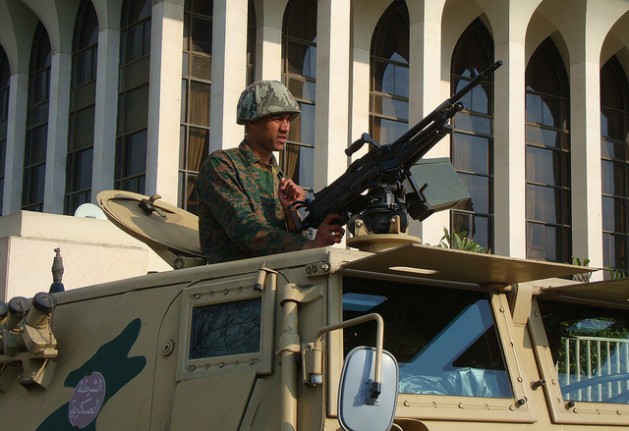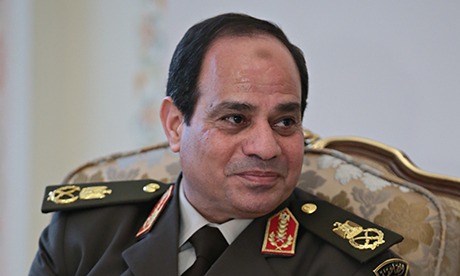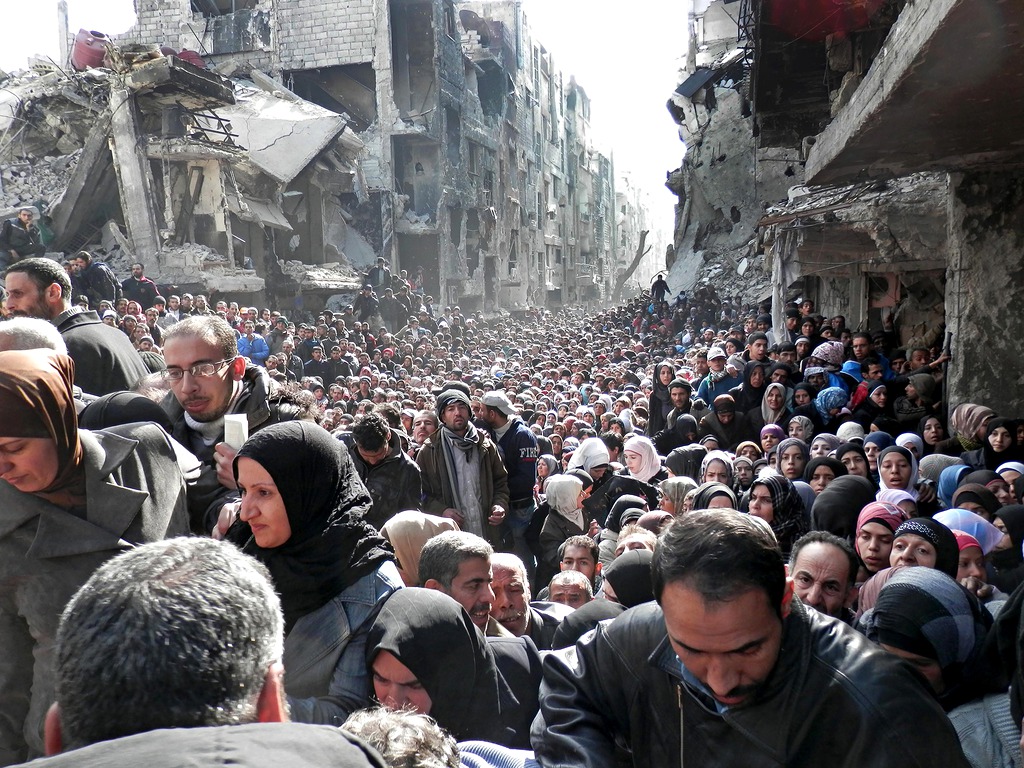عيشوا كالحيوانات وإلا نذبحكم كالحيوانات!
فيصل القاسم
كان هناك شخص يعيش مع أولاده التسعة وزوجته وحماته وأمه في بيت مُؤجر مؤلف من غرفة واحدة، وحمام داخلي مساحته متر بمتر، ومطبخه عبارة عن طاولة صغيرة. وكان دائماً يتذمر من عيشته التعيسة، وصغر حجم المنزل، فجاءه صاحب البيت ذات يوم، وطلب منه أن يربي له دجاجتين وديكاً في نفس المنزل الصغير مع العائلة، فثارت ثائرة المسكين، لكنه اضطر للرضوخ لطلب صاحب المنزل كي لا يطرده.
وراحت العائلة تعاني من إزعاج الديك ووسخ الدجاجتين. وكي يزيد الطين بلة عاد صاحب البيت بعد فترة، وطلب من المستأجر أن يربي له عنزة في الغرفة ذاتها، فصارت الدجاجتان تلوثان الفراش بالأوساخ، وأصبح الديك يقاتل العنزة، بينما تثغو الأخيرة ليل نهار.
ومما زاد في الطنبور نغماً أن صاحب البيت أمر المستأجر المسكين لاحقاً بأن يربي له عجلاً، فزادت محنته معاناة وألماً.
لكن صاحب المنزل المتغطرس حن على المستأجر بعد طول معاناة وانتظار، فخلصه من الديك والدجاجتين والعنزة والعجل. فطار المستأجر من الفرح، وراح يحدث أصدقاءه عن بيته الفسيح المريح قائلاً: ‘من يوم ما راحوا هالحيوانات الملاعين، وإحنا عايشين مبسوطين مبحبحين’، مع العلم أن البيت بقي على حاله طبعاً.
وهكذا حكاية الحكومات العربية مع شعوبها، فما أن تتذمر الشعوب من وضعها المأساوي حتى تقدم الحكومات على إجراءات أكثر مأساوية وبطشاً وتنكيلاً، فيلهج لسان الشعوب فوراً بالبيت الشهير: ‘رُب يوم بكيت فيه، فلما صرت في غيره بكيت عليه’.
بالأمس القريب ثارت الشعوب للتخلص من الظلم والطغيان وتحقيق الديمقراطية، أو على الأقل من أجل قليل من الأوكسجين، فتكالب عليها القاصي والداني، وجعلها تكفر بالساعة التي ثارت فيها، بعد أن راحوا يحرمونها من أبسط متطلبات ‘مثلث ماسلو[Maslow's Pyramid’، كالأمن والماء والخبز والوقود والكهرباء!
فمن المعروف أن الإنسان يمكن أن يتخلى عن الكثير من الأمور مقابل أمنه الشخصي، لهذا راحوا ينشرون الفوضى والجرائم في بلدان الثورات كي تتحسر الشعوب على أيام الطغيان الخوالي، وتعود إلى حظيرة الطاعة.
لقد أصبح الآن الحصول على أساسيات الحياة الشغل الشاغل للسواد الأعظم من الشعوب التي ثارت، فالأغلبية منشغلة بالبحث عن الأمن وربطة خبز مجبولة بالرمل والقش، وليتر زيت مغشوش من النوعية العاشرة، وكيلو طماطم نصفه عفن، ورطل أرز مخلوط بالحصى. كم تنطبق كلمات بيرم التونسي على يومنا هذا وهو يشتكي من رداءة السلع وارتفاع ثمنها:
الأكل والشرْبْ في أيدْ اللومَنجِيٌه
والطماعين اللي غلوا الملح والمَيٌهْ
والغشاشين اللي فاقوا ع الحرامية
الشاي بالمفتشر مخلوط ملوخية
والبن فيه الشعير تسعين في الميه
والعيش برملة وطينة يا مناخليه
واللحم معروض بدون أختام رسمية
والميه هيه اللبن ولا اللبن هيه
أفاعي متَسيبَةْ من غير رفاعية
ودنيا مترتبة ترتيب فلاتيه’.
لكن حتى هذه السلع الرديئة أصبحت صعبة المنال في بعض البلدان الثائرة، خاصة وأن ثمن ربطة الخبز ارتفع بشكل مذهل، مما جعل الناس يقولون: لم نعد نريد لا حرية ولا ديمقراطية ولا حقوق إنسان ولا بطيخ. نريد فقط أن نأكل ونشرب. لا بل نحلم بالعودة إلى تلك الأيام الجميلة التي عشناها في الماضي، مع العلم أنه كانت أيام ازفتب. لكن ما الذي أجبرك على المر سوى الأمر منه؟ لقد غدت لقمة العيش االيابسةب والشعور بالأمن أهم من أي شيء آخر.
بدأ ملايين العرب يعودون عملياً إلى الدرك الأسفل من امثلث ماسلو الشهير، الذي يقسّم حاجات الإنسان إلى خمسة مستويات، هي الحاجات العضوية كالماء والغذاء والمأوى والتدفئة وغيرها من الاحتياجات الجسدية، ثم السلامة والأمان، الحب والانتماء، الاحترام والتقدير، وفي النهاية تأتي قمة الهرم، وهي تحقيق الذات، وهي أن تشعر بأنك قد حققت غاية أهدافك في الحياة، وأنك قد وصلت إلى قمة ما كنت تتمناه لنفسك.
ولا يمكن لأي مستوى أن يتحقق إلا إذا تحقق ما قبله، فعندما يحقق الناس احتياجاتهم الأساسية يسعون إلى تحقيق احتياجات ذات مستويات أعلى. فإذا كان الإنسان جائعاً، أو عطشاناً، أو أن جسده مختل كيميائياً، فإن كل طاقاته تتجه نحو إصلاح العلة، وبالتالي تظل باقي الاحتياجات الأخرى معطلة لصالح المعتل منها.
وتــُصنف الاحتياجات الدنيا تحت مسمى ااحتياجات العوَّز′، بينما يُصنف المستوى الأعلى تحت ااحتياجات النموب. بعبارة أخرى، فإن الحاجات الأعلى في هذا الهرم تدخل حيز اهتمام الإنسان فقط عندما يحقق الحاجات الأدنى منها تحقيقاً مُرْضياً، وبينما تسبب قوى النمو تحركاً باتجاه الأعلى في الهرم، تسبب القوى الانكفائية تحركا للحاجات الغلاّبة نحو الأسفل.
ولو طبقنا ‘تقسيمات ماسلو’ على الإنسان العربي في بلدان الربيع العربي الآن لوجدنا أنه عاد عملياً ليراوح في الدرك الأسفل من المثلث بعد أن غدا همه الأول والأخير إشباع الحاجات الأساسية من مأكل و مشرب وملبس ومأمن. ولتذهب الحرية والكرامة والديمقراطية إلى الجحيم!
كيف نتوقع من الشعوب العربية المعدمة أن ترتقي بأنفسها وبأوطانها إذا كانت، حسب التقارير الدولية، قبل الثورات تنفق أكثر من تسعين في المائة من دخلها على حاجاتها العضوية فقط، أي الغذاء، بينما تنفق الشعوب المتقدمة عشرة في المائة فقط على الطعام، ويبقى لها حوالي تسعين في المائة من رواتبها لتطور نفسها ثقافياً واجتماعياً واقتصادياً. بعبارة أخرى فإن ملايين العرب غدوا مجرد عبيد لبطونهم ولطواغيتهم، هذا إذا استطاعوا أصلاً أن يملأوا بطونهم وسط الانهيارات الاقتصادية المخيفة، والغلاء الرهيب وانحسار الموارد والفوضى الرهيبة المتعمدة التي نشرتها السلطات لإخضاع الشعوب المطالبة بحريتها وكرامتها.
لقد قال السيد المسيح: ‘ليس بالخبز وحده يحيا الإنسان’. وكان يقصد أن الإنسان ليس جسداً فقط، بل هو روح ونفس أيضاً. وهكذا يحتاج الإنسان، لكي يستمتع بحياته، إلى التوازن بين الاهتمامات الجسدية والاهتمامات الروحية.
فلا ينشغل بحاجات الجسد من مأكل ومشرب وملبس وإشباع الغرائز فقط على حساب النفس والروح.
لكن ماذا تفعل الشعوب العربية، التي تريد أن تحيا بالخبز وحده، لكنها لا تجده الآن بعد أن جعله المتكالبون عليه في الداخل والخارج حلماً بعيد المنال؟ ‘تريدين الخبز أيتها الشعوب’:
يصيح طواغيتها وكفلاؤهم في الخارج: ‘حسناً، سنعطيك الخبز والماء، وأحياناً الكهرباء، لكن بشرط أن تعودي إلى زريبة الطاعة. وإذا ركبت رأسك، فسنقطعه’. هذا ما يحدث الآن حرفياً في بعض بلدان الربيع العربي، وخاصةسوريا. فإما أن ينجح مخطط التركيع والتجويع والذبح، أو أن الشعوب تفهم اللعبة الحقيرة، وتردد مع بنجامين فرانكلين: ‘من يُضحي بالحرية من أجل الأمن لا يستحق لا الأمن ولا الحرية’.









